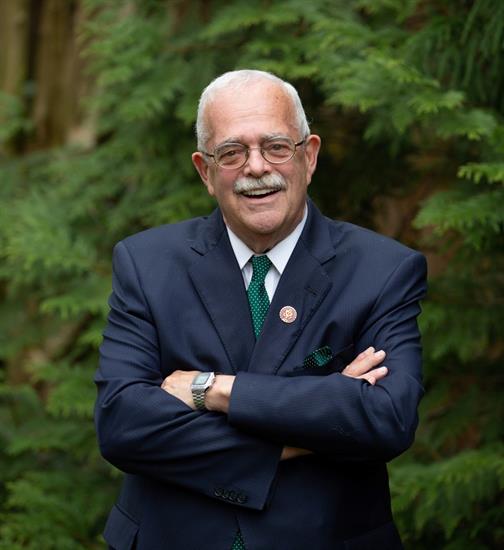As a Woman: Privilege & Struggle- Do They Exist?
Several months ago, we started a series entitled As A Woman. The goal of this series was to highlight the challenges unique to women, especially women of color. As the weeks went on, the political climate changed and opinions regarding critical race theory became primary topics of conversations. During this time, a conversation with a white woman caused me to pause and reflect. A white woman asked me if I thought the Black community really had a struggle in today’s time, and are White people really privileged. She asked if catering articles to a Black struggle were adding to the problem rather than encouraging unity.
My reflection started as days, which turned into weeks and even months. I asked the questions, what really is privilege and do Black people of today really have a struggle?
What is privilege? According to one definition, privileged is “having special rights, advantages, or immunities.” Do White people have “special rights, advantages, or immunities?” In many areas, non-Black people do indeed have special advantages over their Black counterparts.
An article in SHRM, By Stephen Miller, CEBS June 11, 2020 reported on data from a report by PayScale which “analyzed differences in earnings between white men and men of color using data from a sample of 1.8 million employees surveyed between January 2017 and February 2019.Among the findings, Gruver reported: “Even as black or African-American men climb the corporate ladder, they still make less than equally qualified white men. They are the only racial/ethnic group that does not achieve pay parity with white men at some level.”
The study found that black men had the largest “uncontrolled pay gap” relative to white men, when comparing the average earnings of black men and white men in the U.S.On average, black men earned 87 cents for every dollar a white man earned. Hispanic workers had the next largest gap, earning 91 cents for every dollar earned by white men.”
And what about Black women?
According to this same report, “Black women who worked full time, year-round in low-wage occupations were typically paid about $21,700 annually, compared to the $36,000 typically paid to white, non-Hispanic men in these occupations, NWLC found. “This gap translates to a loss of $14,300 each year to the wage gap—more than enough to pay for an entire year’s worth of rent or more than a year and a half of child care costs,” Temple and Tucker noted. Among workers in high-wage occupations—such as lawyers, engineers and physicians—black women who work full time, year-round were typically paid about $70,000, compared to the $110,000 typically paid to white, non-Hispanic men in the same jobs. This amounts to an annual loss of $40,000 each year, or $1.6 million over a 40-year career.”
This leads me to the “struggle” for the Black Culture. Merriam-Webster defines struggle as “to make strenuous or violent efforts in the face of difficulties or opposition struggling with the problem to proceed with difficulty or with great effort.”
Imagine living in a neighborhood that has a high cost of living. You are just as qualified for your job as your counterparts of a different race and yet you are bringing home a significantly less income? Could you perhaps struggle with feeling valued? Now with a lower income, your debt to income ratio becomes smaller, so getting financial benefits such as lower interest rates and loan approvals becomes even harder for you-simply because you are not white.
Lower incomes and higher crime areas, combined with police brutality and unfair judgements can cause a Black person to feel they are making violent efforts in the face of difficulties or opposition.
Can the reality of privilege and struggle become a block from forward movement? Do we use these labels to judge others inappropriately?
I believe so.
If privilege is having special rights, advantages, or immunities, this isn’t just experienced by the White community. The people living in the United States, even when disadvantaged, are still “privileged”. It’s no secret that we live in an area where food is plentiful, healthcare is available, and we enjoy freedoms that others do not. Does being privileged make us bad people? Should we not take advantages of these “benefits” simply because it’s not fair that others do not have the same? Likewise, are those of a different race to be penalized if they enjoy their privilege? Does that make them racist? If no one ever told a Black person, they were disadvantaged, either directly or by actions and they believed they had the same opportunities as their counterparts, would the “struggle” be less?
When I coach women and girls on how to love themselves, I always share with them that their biggest challenge is how they see themselves in the world in which they live. What I learned from my months of reflection is that privileges and struggle exist in every form of society. Amplifying our Black voice, highlighting Black business and providing solutions to very specific struggles that Black people face is for us. If no one ever told us that our differences made us less than, then it’s possible we would have less struggle and perhaps less disadvantage. Our voice needs to be heard, not simply to remind the “privilege” that they are privileged, but remind the Black community that we are stronger than our “struggle”. That we as a community can honor our disadvantage by creating new opportunities for ourselves and generations to come. Our voice can create a legacy and break the myth that we live under “generational curses”. Instead, we can stop repeating behavior that keeps us in a disadvantaged mental state.
As a woman, I am honored that my struggle is less than the struggle of the women before me and that the choices I make, that we make as a community and society, will create a less struggle for the women coming after me.



